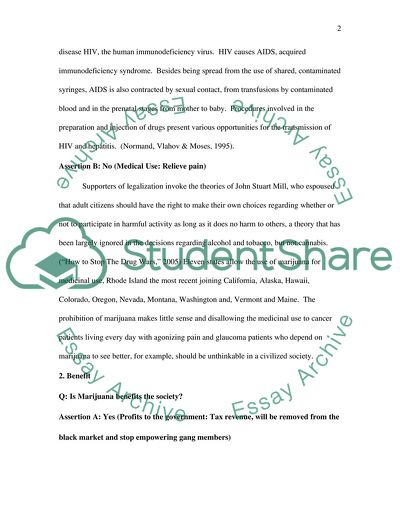Cite this document
(Pros and Cons of Marijuana Legalization Assignment, n.d.)
Pros and Cons of Marijuana Legalization Assignment. Retrieved from https://studentshare.org/law/1558142-analysis-essay-legalizing-marijuana
Pros and Cons of Marijuana Legalization Assignment. Retrieved from https://studentshare.org/law/1558142-analysis-essay-legalizing-marijuana
(Pros and Cons of Marijuana Legalization Assignment)
Pros and Cons of Marijuana Legalization Assignment. https://studentshare.org/law/1558142-analysis-essay-legalizing-marijuana.
Pros and Cons of Marijuana Legalization Assignment. https://studentshare.org/law/1558142-analysis-essay-legalizing-marijuana.
“Pros and Cons of Marijuana Legalization Assignment”, n.d. https://studentshare.org/law/1558142-analysis-essay-legalizing-marijuana.


